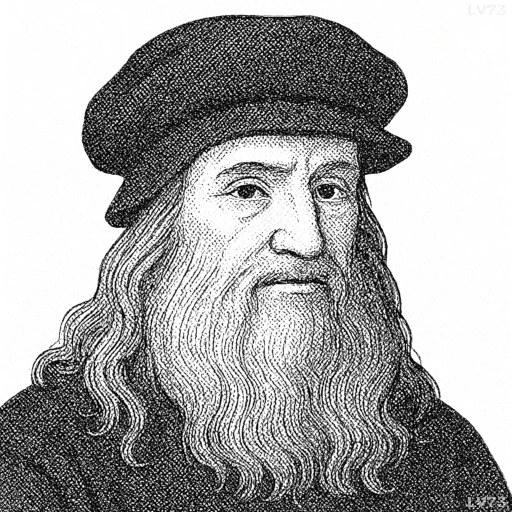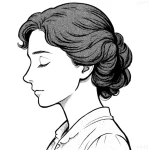“There are four Powers: memory and intellect, desire and covetousness. The two first are mental and the others sensual. The three senses: sight, hearing and smell cannot well be prevented; touch and taste not at all.”

- April 15, 1452 – May 2, 1519
- Italian
- A versatile man (painter, sculptor, architect, inventor, scientist, etc.)
table of contents
Quote
“There are four Powers: memory and intellect, desire and covetousness. The two first are mental and the others sensual. The three senses: sight, hearing and smell cannot well be prevented; touch and taste not at all.”
Explanation
In this quote, Leonardo da Vinci outlines the four fundamental powers of the human being: memory, intellect, desire, and covetousness. Da Vinci categorizes them into mental powers (memory and intellect) and sensual powers (desire and covetousness). Memory and intellect are capacities of the mind—memory allowing us to recall past experiences, and intellect enabling us to reason, understand, and solve problems. On the other hand, desire and covetousness are tied to the senses and the body’s desires—desire being a longing for something, and covetousness being an insatiable craving for it.
Da Vinci also explores the senses, noting that the first three senses—sight, hearing, and smell—are not easily controlled or prevented, while the last two, touch and taste, are even more difficult to restrain. The quote reflects Da Vinci’s recognition of the complex relationship between the mind and the body. He acknowledges that while the intellect and memory offer us higher faculties to navigate the world, our sensual desires and the pull of the senses can often lead us away from rational thought or wisdom.
Historically, Da Vinci’s views tie into Renaissance ideas about the human condition, where philosophers and scientists debated the balance between reason and passion, as well as the tension between the spiritual and the material aspects of life. Thinkers during this time were concerned with how reason could control the passions, recognizing that the mind has the power to guide behavior, but also acknowledging the powerful influence of sensual impulses on human actions.
In modern terms, this quote speaks to the dual nature of human experience—our mental faculties and our sensual instincts. It highlights the ongoing challenge in psychology and ethics between cultivating reason and managing desire. Whether in decision-making, behavioral control, or self-discipline, Da Vinci’s words serve as a reminder of the importance of balancing intellect with the more primal forces of our nature, and recognizing that while we may have the power of memory and intellect, our senses and desires are often harder to restrain.
Would you like to share your impressions or related stories about this quote in the comments section?




